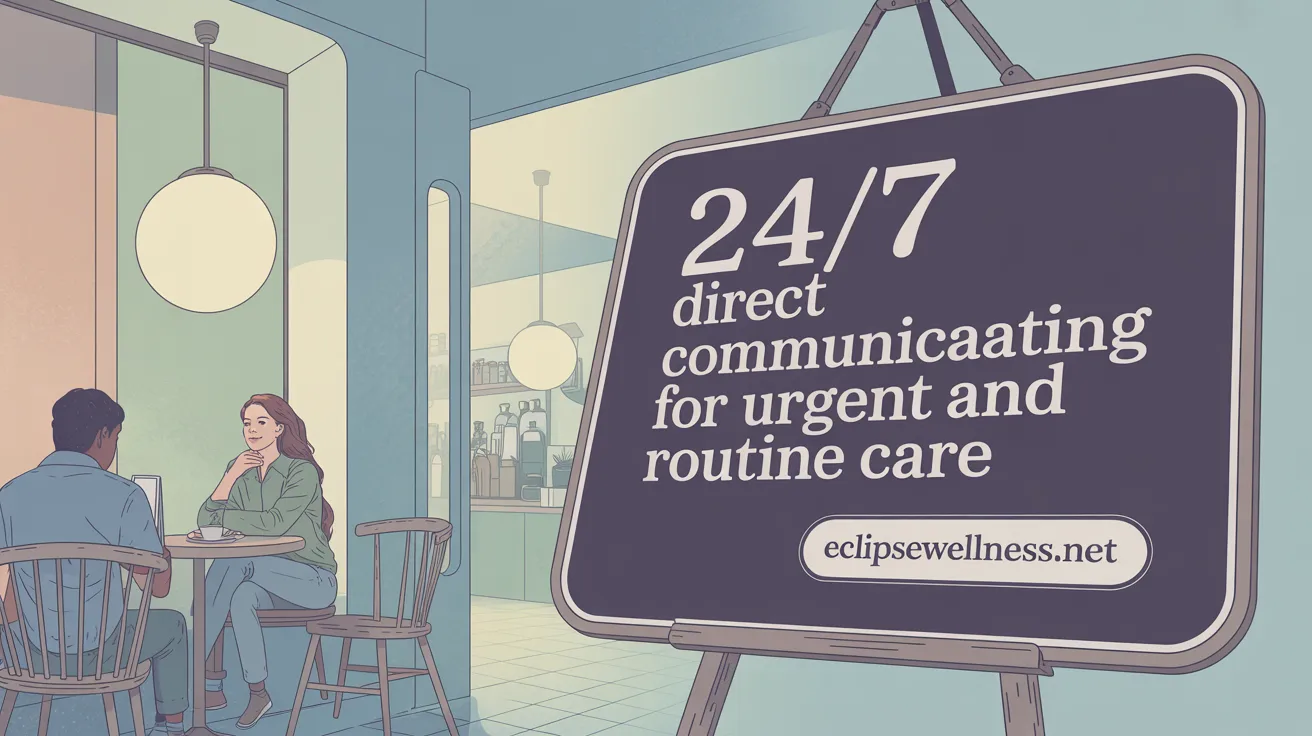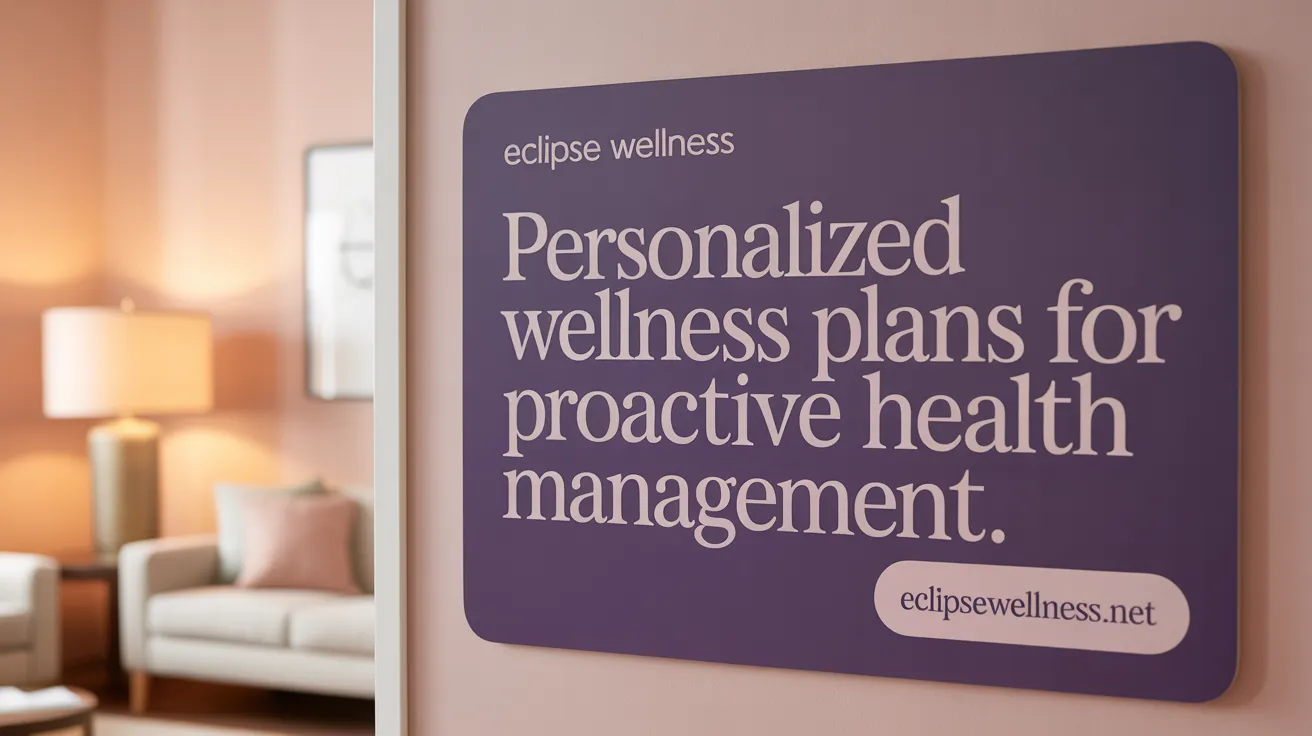Introducing Concierge Primary Care: A New Paradigm in Personalized Medicine
What Is Concierge Primary Care?
Concierge primary care is a membership-based healthcare model that emphasizes personalized, comprehensive attention to patients. Unlike traditional practices where doctors may see thousands of patients, concierge physicians typically manage smaller patient panels, often between 400 and 600 individuals. This allows for longer, unrushed appointments, usually 30 minutes or more, enabling deeper conversations and thorough evaluations.
Membership-Based Personalized Healthcare
Patients enroll by paying an annual or monthly fee, which grants them enhanced access to their physician. This includes same-day or next-day appointments, 24/7 direct communication via phone, email, or text, and more proactive care management. While this fee covers personalized services, patients generally maintain insurance to cover hospitalizations or specialist visits.
Individualized Patient Attention
The cornerstone of concierge primary care is individualized attention tailored to each patient’s unique needs. Physicians develop customized wellness and treatment plans based on medical history, genetics, lifestyle, and ongoing health updates. This approach focuses heavily on prevention and early detection, aiming to reduce hospitalizations and improve chronic disease management. Patients benefit from a trusting, continuous doctor-patient relationship fostering collaboration and patient empowerment.
Concierge primary care represents a shift toward patient-centered healthcare, combining accessibility, personalization, and preventive strategies to enhance overall health outcomes and patient satisfaction.
Smaller Patient Panels Enabling Deeper Physician-Patient Relationships
How does concierge primary care improve the physician-patient relationship?
Concierge primary care transforms the traditional healthcare experience by limiting the number of patients each physician manages. Instead of the typical 2,000 or more patients in conventional practices, concierge doctors care for panels of about 400 to 600 patients. This significant reduction allows physicians to dedicate much more time per individual, with appointments often lasting 30 minutes or longer.
This extended appointment time means visits are unrushed and comprehensive, creating space for detailed discussions that cover not just immediate issues but also lifestyle, preventive care, and long-term wellness planning. The result is a stronger bond of trust as patients feel heard and valued, which encourages open communication and collaborative decision-making.
Benefits of fewer patients per physician
Managing fewer patients also means concierge physicians can respond promptly to patient communications, such as phone calls, texts, or emails, including after-hours access. This accessibility enhances patient reassurance and engagement in their health journey.
Moreover, the smaller patient load reduces physician burnout, allowing doctors to maintain better work-life balance and sustain the quality of care over time. Patients enjoy a more personalized healthcare experience that addresses physical, mental, and social aspects tailored precisely to their needs. This personalized approach improves chronic disease management, proactive prevention, and ultimately leads to higher patient satisfaction and better health outcomes.
Enhanced Access and Convenience Through Direct Physician Communication

What advantages does concierge primary care offer in terms of physician accessibility?
Concierge primary care significantly enhances physician accessibility by providing patients with direct, round-the-clock communication options. Members typically have 24/7 access to their doctors via phone, email, or text message, allowing them to rapidly address urgent health concerns anytime, including nights and weekends. This constant availability fosters timely medical advice and intervention without the need to visit emergency rooms unnecessarily.
Additionally, concierge practices offer same-day or next-day appointments, greatly reducing traditional wait times. This immediacy ensures medical issues are promptly evaluated and managed, which can improve patient outcomes. Virtual visits through telemedicine provide further flexibility, enabling patients to consult their physicians from the comfort of their homes.
The ability to readily communicate with healthcare providers also enhances the patient-doctor relationship by fostering continuous dialogue. Patients feel supported and confident knowing their physician is accessible, which increases engagement and adherence to personalized treatment plans.
Overall, the multiple communication channels and urgent appointment availability make concierge medicine a compelling option for patients seeking convenient, proactive, and personalized care.
Comprehensive Personalized Health Plans Focused on Prevention and Wellness

How does concierge primary care facilitate personalized health planning?
Concierge primary care offers a uniquely tailored approach to health by creating customized wellness and treatment plans based on a patient's genetic makeup, lifestyle habits, environmental exposures, and detailed health history. This personalization allows doctors to develop comprehensive care strategies that go beyond traditional reactive medicine, emphasizing early intervention and prevention.
Physicians in concierge settings dedicate longer appointment times to gather in-depth information, enabling the integration of predictive screenings that detect diseases before symptoms appear. This proactive stance helps reduce the risk of chronic illness progression and enhances overall health outcomes.
Many concierge practices blend conventional medicine with holistic medicine and functional medicine approaches. These include addressing root causes of health issues—such as inflammation or hormonal imbalances—alongside complementary therapies like nutrition counseling, acupuncture, and mindfulness training. Such integration ensures a whole-person focus that appreciates the mind–body connection and tailors interventions to each patient’s unique needs.
The result is a collaborative partnership where patients are empowered to actively participate in their health management. Regular monitoring and personalized adjustments promote long-term wellness and prevent disease, supporting patients across all stages of life with attentive, patient-centered care.
Improved Management of Chronic Conditions and Mental Health Support

In what ways does concierge care improve chronic disease and mental health management?
Concierge care profoundly enhances the management of chronic conditions and mental health through several personalized strategies.
Better Chronic Disease Management
By limiting patient panels, concierge physicians dedicate more time to each patient, allowing thorough evaluation and tailored treatment plans for chronic diseases like diabetes and hypertension. Longer, unrushed visits promote detailed discussions about medication adherence, lifestyle modifications, and early detection of complications. This individualized attention ensures treatments align closely with patients’ unique health profiles and lifestyles.
Regular Monitoring and Lifestyle Support
Concierge practices prioritize regular follow-ups and proactive monitoring, which support sustained lifestyle changes such as improved nutrition, physical activity, and stress management. Their coordinated care approach facilitates timely adjustments in care plans, reinforcing preventive strategies and minimizing disease progression.
Mental Health Integration
Mental health care is seamlessly incorporated, offering counseling, personalized therapy, and behavioral health support alongside physical health management. This holistic medicine approach addresses emotional well-being as an integral part of chronic disease care, enhancing overall patient outcomes and satisfaction.
Reduced Hospitalizations and Emergency Care
Research indicates patients in concierge primary care programs experience 74% fewer hospitalizations and 40% faster emergency treatment compared to traditional care settings. This outcome stems from attentive management, immediate access to physicians, and early intervention, reducing costly hospital stays and improving quality of life.
Overall, concierge medicine's personalized, comprehensive, and preventive focus empowers patients and fosters better management of complex health issues, including chronic and mental health conditions, while reducing acute care episodes.
Coordination of Care and Seamless Specialist Referrals

How does concierge primary care enhance coordination with specialists and reduce administrative burdens?
Concierge physicians serve as proactive advocates for their patients, overseeing the entire spectrum of healthcare from primary to specialist services. By managing referrals, scheduling diagnostic tests, and following up on specialist care, they ensure that patients receive timely and coordinated treatment (Concierge Medicine Overview, Benefits of Concierge Medicine).
This approach reduces administrative hurdles for patients, such as navigating complex healthcare systems or facing prolonged wait times. Concierge doctors handle much of this logistical work, enabling patients to enjoy a smoother, more integrated healthcare experience (Streamlined healthcare experience, Reduced wait times).
Smaller patient panels in concierge practices allow physicians to develop a comprehensive understanding of each patient's health history and needs, promoting continuity of care (Fewer Patients Per Concierge Doctor, Continuity of care benefits). This familiarity helps anticipate referrals and manage transitions between providers more effectively.
Ultimately, patients benefit from reduced fragmentation of care, prompt specialist access, and a healthcare journey characterized by personalized attention and less frustration (Personalized primary care, Better doctor-patient relationships). The enhanced collaboration between primary care providers and specialists within concierge medicine represents a significant improvement in healthcare delivery and patient satisfaction (Patient satisfaction in concierge care, Coordinated Specialist Care.
The Role of Technology and Wellness Resources in Personalized Concierge Care

What technological and wellness resources support personalized care in concierge medicine?
Concierge medicine leverages cutting-edge technology to deliver highly personalized care tailored to each patient's unique health profile. Advanced diagnostics, such as genetic and genomic testing, allow physicians to identify individual risk factors and susceptibilities, facilitating proactive and preventive health strategies.
Integration of electronic medical records (EMRs) combined with AI-driven tools supports comprehensive personalized care plans. These technologies help providers analyze a patient's medical history, lifestyle, and biometric data efficiently, enabling early disease detection and more precise treatment.
Beyond diagnostics, many concierge practices incorporate health coaching and wellness programs as essential components of care. These programs often include nutrition counseling, stress management, exercise guidance, and lifestyle coaching, fostering a holistic medicine approach that addresses physical, mental, and emotional well-being.
Telemedicine and remote monitoring further enhance accessibility, allowing patients to consult their physicians conveniently and maintain continuous health supervision. Such virtual visit options promote timely interventions and support chronic disease management, empowering patients in their wellness journey.
Together, these technological and wellness resources create a dynamic, patient-centered care environment that emphasizes personalized attention, prevention, and sustained health optimization.
Cost Considerations and Ethical Implications of Concierge Primary Care
What are the financial and ethical considerations related to concierge primary care?
Concierge primary care typically involves an annual membership fee ranging from $1,200 to $2,400, which patients pay directly out-of-pocket. These fees usually are not reimbursed by Medicare or other insurance plans, meaning patients still need traditional insurance to cover hospitalizations, specialist visits, and other medical services beyond the concierge care scope.
This model increases healthcare access and quality for those who can afford it, offering longer appointments, immediate physician availability, and personalized treatment plans. However, the reliance on membership fees raises ethical concerns regarding equitable access. Concierge care may contribute to a two-tier system where only higher-income individuals can access this level of personalized, proactive primary care, potentially widening health disparities.
Despite these concerns, concierge medicine's focus on prevention, early disease detection, and chronic disease management can reduce hospitalizations and emergency visits, fostering cost-effectiveness over time. By emphasizing wellness and proactive strategies, patients may experience fewer complications and lower long-term healthcare expenses. Balancing affordability while expanding accessibility remains a vital challenge as concierge medicine continues to grow in popularity.
Concierge Medicine: Championing Personalized Attention for Better Health Outcomes
Concierge medicine offers a transformative approach to healthcare, prioritizing personalized attention and proactive wellness over volume-driven visits. By limiting patient panels—often to just 400-600 individuals—physicians allocate more time for each patient, enabling in-depth discussions, comprehensive health assessments, and tailored treatment plans.
The core advantage of concierge care is its emphasis on preventive healthcare. Patients benefit from longer appointments, same-day or next-day access, and around-the-clock communication via phone, email, or text. This enhanced access facilitates early detection through detailed screenings and diagnostic testing, regular monitoring of chronic conditions like diabetes and hypertension, and customized lifestyle interventions including nutrition, exercise, and stress management.
Importantly, concierge physicians often employ an integrative approach, blending conventional medicine with complementary therapies to address physical, mental, and emotional health holistically. This patient-centered care model fosters stronger doctor-patient relationships, empowering individuals to actively participate in their health journey, resulting in higher satisfaction and improved clinical outcomes.
By redefining how primary care is delivered—prioritizing quality, accessibility, and prevention—concierge medicine holds the potential to reshape healthcare experiences, reduce hospitalizations, and optimize health across all age groups.
